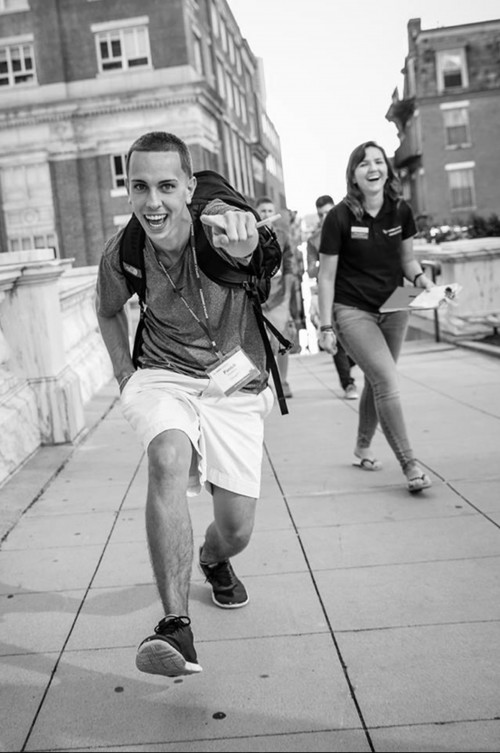By Heather Rutherford

One of the hardest transitions for young adults is leaving the comfort of their homes and high school routines and entering the college world. Everyone experiences their freshman year of college differently, whether it is whom they decide to room with, what classes they take, or what activities they get involved in. Colleges across the country aim to alleviate the stress that comes with this new territory by planning orientations for incoming students.
Orientation sessions give students a taste for the college life, while allowing each student to make the best of their time during their session. However, the timing of the orientation sessions can make the fundamental difference between whether or not a student can make a successful transition. It may be more worthwhile having orientation closer to the fall semester.
When recent high school graduates imagine their orientation, they do not exactly know what to expect. Graduating from high school this year, Reagan McGee of North Smithfield, R.I., has mixed emotions about the timing of her orientation.
“I’m nervous but mostly excited to experience new things in college that are different from high school,” she said. She expects to meet many new people at her orientation for Massachusetts School of Pharmacy and Health Sciences on June 22.
Although it might make sense that orientation would start shortly after a student’s high school graduation, some who have attended these early orientations disagree.
Sophomore Kaitlin Mariotti of Rhode Island College says that her orientation was days after she received her high school diploma.
“It was extremely overwhelming to go right from a high school atmosphere to college,” Mariotti said. “A break in between would have been more beneficial for me.”
The only logical reasons for a school to plan orientations right after graduation may be to get their students ready for what is to come ahead of time, and to let students make friends way before the year even begins. Incoming students have virtually no idea what the actual college experience will be like for them, and schools like to give them possibilities.
Schools like Rhode Island College and Suffolk University hold their orientation sessions throughout the month of June. The earliest session at Suffolk this year is on June 5, which is possibly before seniors even graduate high school. These sessions last two days, with one overnight stay in the dorms. Events are scheduled throughout the two days, including games to get to know peers within groups, tuition and financial aid sessions, and various campus tours. There are also events for parents simultaneously.
After completing her first year of college, sophomore Brittney Cote from Curry College is convinced that her freshman year may have been different if her orientation was held towards the end of the summer rather than the beginning. Looking back, Cote said, “One thing I would change is to have more interaction between roommates and peers rather than just through tedious games.”
What often happens with early orientations is that if friends are made, these friendships are not even kept when school officially begins. Mariotti said she made friends while being put into groups during orientation, and explained, “Icebreaker activities forced us to become friendly, but I have never seen or talked to those people again.” Because of this, the reason for having orientation early on in order to meet people is virtuously inefficient.







